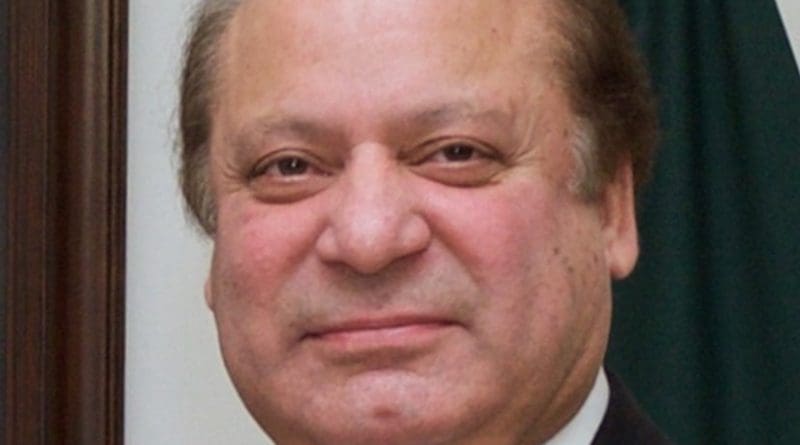What’s Next After Pakistan’s Inconclusive Elections? – Analysis
By RFE RL
By Abubakar Siddique
(RFE/RL) — Pakistan’s national elections on February 8 failed to produce a clear winner, triggering intense political jockeying among rival parties to form a coalition government.
Candidates allied with jailed former Prime Minister Imran Khan won the most seats — 93 out of the 265 available — in the National Assembly. But they were forced to run as independents after Khan’s Pakistan Tehrik-e Insaf (PTI) party was barred from the vote, a major obstacle to them forming a government.
Ex-Prime Minister Nawaz Sharif’s Pakistan Muslim League-Nawaz (PML-N) party received the second-largest share of seats with 75. The Pakistan People’s Party (PPP), led by Bilawal Bhutto-Zardari, came in third with 54. Smaller parties and other independents won the remaining 42 seats.
At least 169 seats are required to form a majority in the 336-member National Assembly, or lower house of parliament. Seventy seats are reserved for women and religious minorities and allocated according to election results.
There are several scenarios that could play out in the days and weeks ahead.
Anti-Khan Coalition
A coalition between the PML-N and the PPP — which formed the last government after ousting Khan in a no-confidence vote in 2022 — is the mostly likely outcome, experts say.
The two parties are currently locked in negotiations. One point of contention, however, is their pick for the post of prime minister.
“There is no doubt that they are going to form a coalition government,” said Azaz Syed, a Pakistan political reporter and commentator. “They are now discussing who will be their prime minister.”
Faisal Karim Kundi, a senior PPP leader, said on February 12 that the party was pushing for Bhutto-Zardari to get the top job.
The PPP has assumed the role of kingmaker, with neither the PML-N nor Khan’s allies able to form a government without it.
Another PML-N and the PPP alliance “will take shape sooner than later,” said prominent Pakistani journalist and commentator Cyril Almeida. “The PTI, which will not ally with either PML-N or PPP for obvious reasons, will sit on the opposition benches.”
Significantly, the PML-N is widely believed to have the backing of the powerful army, which has an oversized role in the country’s politics.
Return Of Khan?
Independent candidates backed by Khan have said they will also seek to form a coalition government.
But they face opposition from the army, the country’s ultimate power broker. The PTI has accused the military of orchestrating Khan’s jailing last year and waging a sweeping crackdown against the party, which was barred from campaigning.
A reconciliation between the army and Khan appears unlikely, experts say.
Khan’s allies could join a smaller party to form a single bloc. That could also give them access to the additional 70 reserved seats.
Dozens of candidates backed by the PTI have alleged vote rigging and are challenging the results in courts, which could further boost their share of seats. Khan’s supporters have also taken to the streets in recent days to protest the election results.
PTI supporters fear the army could strong-arm independent candidates backed by Khan into switching sides.
“The real question is whether the generals will allow PTI winners to sit in parliament unmolested under the PTI banner,” said Almeida. “Or whether the candidates will be pressured to renounce the party and herded into other camps.” Waseem Qadir became the first PTI-backed candidate to defect to the PML-N on February 11.
PTI Chairman Gohar Ali Khan has expressed confidence that his party can form a government. “We have done our homework and are ready to form the government,” he told RFE/RL’s Radio Mashaal on February 11.
Rafiullah Kakar, a political analyst based in Islamabad, said another possibility is that the PTI joins hands with the PPP by offering its rival the prime minister’s post, although he admitted that it would be a “surprise.”
A Deadlock
The National Assembly must convene within 21 days of an election, according to Pakistani law. Lawmakers are sworn in and then must elect a new prime minister. They will continue to meet until a new premier is named.
But there is a chance, given the political polarization in the country, that rival parties fail to form a government before then. If they cannot, the process will drag on and create further uncertainty.
Observers say that the PML-N could try to attract enough independent candidates so it would not need to form a coalition with the PPP, a rival. That, they say, could scupper hopes of a quick deal to form a new government.
Protracted delays could plunge Pakistan, which is already grappling with a flagging economy and rising militant violence, further into crisis.
- Abubakar Siddique, a journalist for RFE/RL’s Radio Azadi, specializes in the coverage of Afghanistan and Pakistan. He is the author of The Pashtun Question: The Unresolved Key To The Future Of Pakistan And Afghanistan. He is also one of the authors of the Azadi Briefing, a weekly newsletter that unpacks the key issues in Afghanistan.

